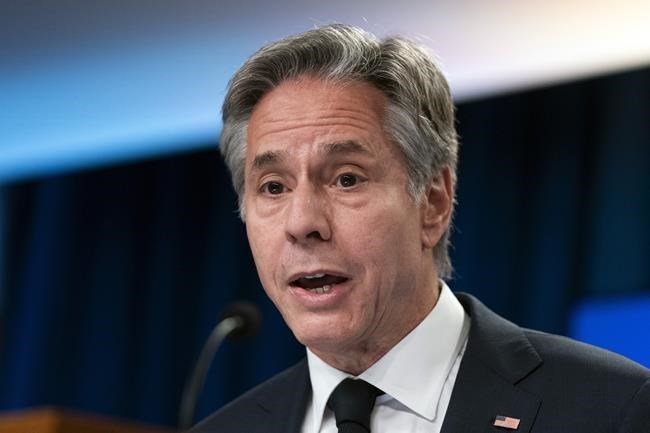WASHINGTON (AP) — Secretary of State Antony Blinken on Monday urged the Senate to move forward with votes on more than 60 diplomatic nominations, including 38 ambassadors, that have been stalled due to objections by individual lawmakers.
In a letter to all 100 senators and in public comments, Blinken said delays in confirmation votes for these nominees constitute a national security risk. Blinken said 35 of the 38 ambassadorial nominees are career foreign service officers who have served in both Republican and Democratic administrations.
“Vacant posts have a long-term negative impact on U.S. national security, including our ability to reassure allies and partners, and counter diplomatic efforts by our adversaries,” Blinken wrote in the letter. In particular he pointed to China and Russia as the main beneficiaries of Senate inaction.
Blinken singled out Republican Sen. Rand Paul of Kentucky as the main impediment. Paul has put a blanket hold on all State Department nominees, citing the Biden administration’s refusal to provide him documents related to the origin of the COVID-19 pandemic.
“No one is questioning the qualifications of these career diplomats,” Blinken told reporters. “They’re being blocked from leverage on other unrelated issues. It’s irresponsible, and it’s doing harm to our national security.”
State Department spokesman Matthew Miller said later that Paul was holding qualified career nominees “hostage” for no good reason. “Senator Paul can make legitimate requests at the State Department or others in the administration; what we object to is him holding hostage nominees,” he said.
The backlog of State Department nominees awaiting Senate confirmation is similar but less pronounced than that facing the Pentagon. One Republican Senator, Tommy Tuberville of Alabama, has a blanket hold on all Defense Department nominations and promotions in an attempt to try to change Pentagon's abortion policy.
Tuberville has already stalled more than 260 nominations of senior military officers and that number could balloon to 650 by the end of the year.
Matthew Lee, The Associated Press

